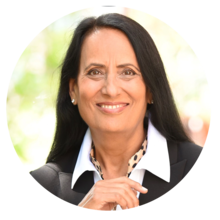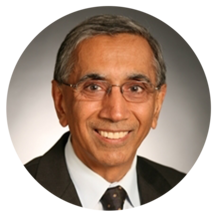About this Presentation
The presentation will convey lessons learned from TOC improvement projects in three different state governments in the US. Mr. Fox will share his experiences in assisting the states of Utah, Hawaii and Texas in designing and implementing lasting and expanding on-going improvement initiatives. The presentation will be given in three sections: 1 Discussion of common challenges faced in each environment. 2 Overview of the simplified TOC knowledge and process used to create a snowball effect within the state. 3 Sharing of the results and lessons learned. In spite of having very different starting points, the three states all faced a number of common challenges that are likely common across most or all government operations: 1.There was strong resistance to change, and many of the staff were de-motivated from past failed initiatives. 2. Goals and a sense of overall purpose were unclear or mis-understood and further muddied by the existence of many different stakeholders and political viewpoints. 3. Local measurements and government budgeting processes rewarded a number of behaviors that were often out of alignment with that goal. 4. There were few rewards (and often penalties) for doing things better, whereas there were considerable risks and penalties associated with efforts to do anything differently. 5. The annual budgeting process had created a mindset that the options for improvement were very narrow: Increase spending, or automate with IT solutions. A simplified model for applying TOC’s five focusing steps was used in each state to initiate the process in a couple of pilot areas. The essential elements of the model were: 1. Very short (4 hrs or less) workshops on the basic flow principles of TOC (Throughput and the Five Steps); 2. A facilitated discussion and definition of the goal and key metrics of the operation, 3. The creation of a simple flow map of the operation and documentation of how to apply the five focusing steps to that picture, 4. A gap analysis to identify where to focus improvement efforts, and 5. A “plan-do-measure” feedback loop to drive and monitor improvement efforts. In each case the process was facilitated so that managers and team members fully owned the goal, metrics, strategy map, and improvement actions. The definition of the goal and metrics quickly clarified what everyone was about, and with the strategy map created a strong alignment within everyone of the business process where this was undertaken. The model made it easy for managers and staff alike to determine and maintain their focus on the current system constraints. This sharp focus ensured that their actions produced results. The model gave everyone a way to sustain and expand the results producing on-going gains long after the consultants were through. Through examples from each of the three states we will highlight how this simplified approach helped each state overcome the significant obstacles outlined above, as well as how each state is internalizing the model and spreading it from within. In the final section of the presentation we will share samples of the results achieved, the sustainment and expansion models being used in each state, and summarize our lessons learned.
What Will You Learn
To help you get the most value from this session, we’ve highlighted a few key points. These takeaways capture the main ideas and practical insights from the presentation, making it easier for you to review, reflect, and apply what you’ve learned.

Instructor(s)
Kevin Fox

Ms Alka Wadhwa
Alka Wadhwa is an experienced consultant and process improvement expert with over 24 years of expertise in the Theory of Constraints (TOC), Lean Six Sigma, and organizational performance optimization. She has successfully led projects in healthcare, financial services, and manufacturing, driving significant improvements such as a 67% boost in hospital operations and a 140% increase in outpatient visits.
Previously, Alka Wadhwa spent 17+ years at GE Global Research Center, where she led initiatives to enhance various GE businesses through advanced technologies, process redesign, and system optimization. Founder of Better Solutions Consulting, LLC, she specializes in using TOC, Six Sigma, and data analytics to streamline operations and build high-performance teams.
Her work has earned her multiple accolades, including the Empire State Award of Excellence in healthcare.

Dr Gary Wadhwa
Dr. Gary Wadhwa is a Board Certified Oral & Maxillofacial Surgeon with extensive experience in the field. He completed his Oral & Maxillofacial Surgery training at Montefiore Hospital, Albert Einstein College of Medicine in Bronx, NY, and has served as an Attending at prestigious institutions like St. Peters Hospitals, Ellis Hospital, and Beth Israel Hospital in NY. With a career spanning over two decades, he was the former CEO and President of a group specialty practice in NY from 1994 to 2015. Dr. Wadhwa holds an MBA from UT at Knoxville, TN, and has undergone additional training in System Dynamics at MIT, Health System Management at Harvard Business School, and Entrepreneurship and healthcare innovations at Columbia Business School. Committed to expanding access to Oral & Maxillofacial Surgery care, he is currently engaged in a meaningful project to provide healthcare services to underserved populations in inner city and rural areas through non-profit Community Health Centers.
